Search Results
Showing results 261 to 280 of 558

Soggy Science, Shaken Beans
Source Institutions
Learners explore soybeans, soak them in water to remove their coat, and then split them open to look inside. They also make a musical shaker out of paper cups, a cardboard tube, and soybeans.
Building Houses: Build a Cardboard Tube House
Source Institutions
Build a house you can fit inside, using cardboard tubes.
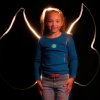
Light Painting
Source Institutions
Light painting is a creative activity that involves creating striking images and illusions using a camera, a light source, and a little practice.
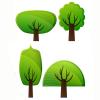
Give or Take?
Source Institutions
In this outdoor activity, learners work in pairs using their senses—especially touch—to learn more about individual trees.
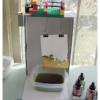
Overnight Painting Machine: Pico Cricket Activity
Source Institutions
This activity requires a Pico Cricket (tiny computer).
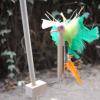
Woodpecker
Source Institutions
In this activity, learners construct a traditional handicraft toy that illustrates a motion commonly associated with violins and earthquakes.
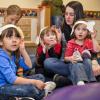
Horton Senses Something Small
Source Institutions
In this story time program, young learners listen to the Dr.
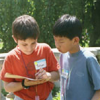
Colors in Nature
Source Institutions
In this activity, learners create colorful bead bracelets to wear outside while searching for matching colors in plants. Learners will be surprised by the variety of colors in nature.
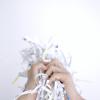
Recycling Paper
Source Institutions
In this crafty chemistry activity (on page 2 of the PDF), learners make their own paper from used paper they may have otherwise thrown away.
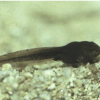
Life Story
Source Institutions
In this two-part activity, learners compare and contrast a variety of life cycles to better understand different organisms and how they develop.
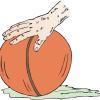
Roller Ball Painting
Source Institutions
This is an activity in which learners explore the effects of gravity, motion and momentum while creating art.
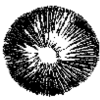
How to Make a Spore Print
Source Institutions
In this activity (p.25 of PDF), learners investigate spores. Mushrooms produce millions of spores which are equivalent to the seeds of plants but without the massive food reserves.
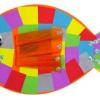
Design-a-Fish
Source Institutions
In this science and language arts activity, learners study fish anatomy and make their very own 3D paper fish.
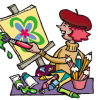
Paint a Fresco
Source Institutions
In this activity on page 7 of the PDF, learners experiment with the interesting designs that can be made by painting on plaster.
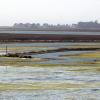
Wetland Preservation Art
Source Institutions
In this hands-on art and science activity (page 4 of the pdf), learners brainstorm and discuss how humans use wetlands, then express their understanding of the subject in artwork.
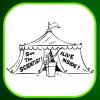
The Face of Science
Source Institutions
Learners draw pictures of how they envision scientists. By comparing and discussing the features in their pictures, they can discover common thoughts and stereotypes about scientists.
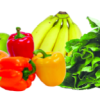
Fruits and Vegetables: Color Your Plate
Source Institutions
In this activity, learners explore healthy choices related to the foods they eat. The importance of a variety of fruits and vegetables to a healthy diet is the focus of the experience.
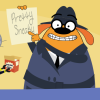
Operation Espionage
Source Institutions
In this activity, learners create and reveal secret messages written with invisible ink! The invisible ink is actually a baking soda solution, and the magical revealing liquid is fruit juice.
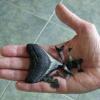
Chomp
Source Institutions
In this activity (page 5 of pdf), learners explore the relationships between the shape and structure of a shark's teeth and the food it eats, and then create their own shark tooth from clay.
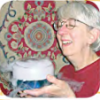
Homework, Hogwarts Style
Source Institutions
In this activity on page 8 of the PDF (Behind the Scenes with Chemistry), learners make three of Harry Potter's essential school supplies: quills, ink, and color-changing paper.
